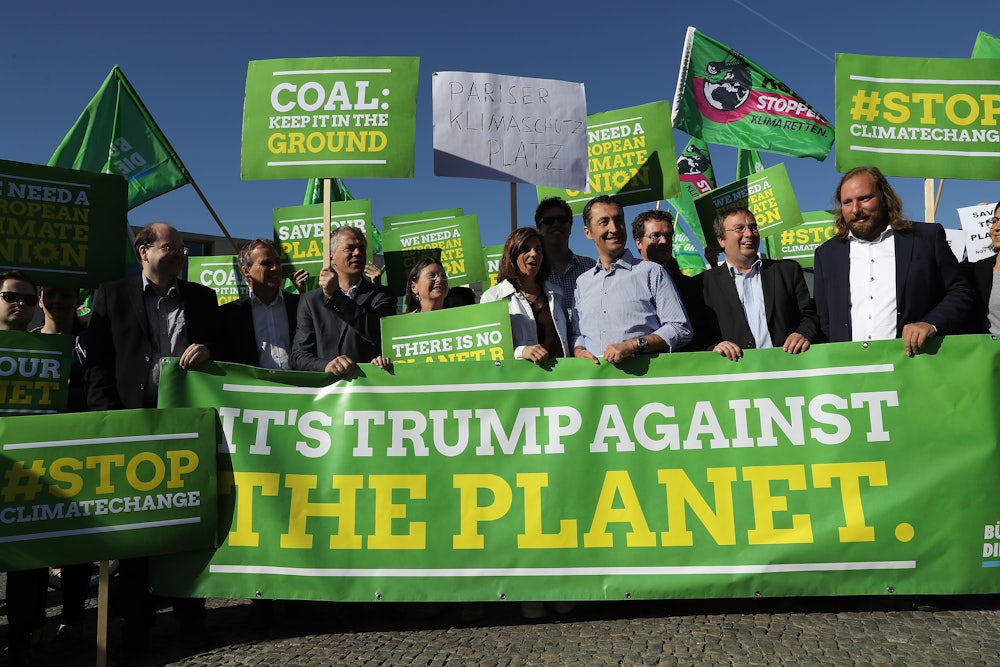Ahead of the United Nations General Assembly meeting in Manhattan this week, the Trump administration is doubling down on its pledge to withdraw the U.S. from the landmark climate accord. At the same time, U.S. climate leaders—and some foreign representatives—are discussing how the other 170 countries party to the deal might make America pay for breaking its promise to reduce emissions.
At the opening ceremony of Climate Week NYC on Monday—less than a mile away from the U.N. meeting—former Clinton Treasury Secretary Larry Summers raised the idea of a “border adjustment carbon tax.” Under this plan, each country that signed the Paris agreement would institute a carbon tax. Countries that don’t have one—i.e., the United States—would face financial penalties levied on exports and imports. “We are going to need a system where you are rewarded for cooperation, and penalized for not cooperating,” Summers said. “That’s why I believe the [border-adjustment carbon tax] is crucial to any climate architecture.” Nicolas Hulot, France’s minister of ecological and solidarity transition, said, “We agree with that. The Paris agreement is not only a piece of paper where 170 states put their signature. It’s a promise to our children, and we cannot lie to our children. We must always say the Paris agreement is negotiable and irreversible. That’s the first step.”
This is not the first time France or other nations have endorsed the idea of punishing America for leaving the Paris agreement. As Quartz reported, “Former French president Nicholas Sarkozy floated a similar idea in November, when Trump first suggested he might withdraw the US from the Paris agreement. His suggested tax rate was between 1 percent and 3 percent. Around the same time, officials from Mexico and Canada began discussing carbon tariffs.”
